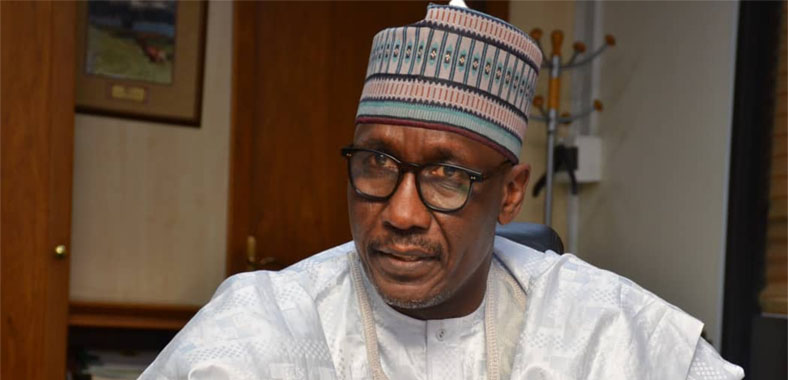Headlines
Crude Crisis: N’Assembly Investigates NNPC, Dangote Refinery

The crude oil crisis prompts N’Assembly to investigate NNPC and Dangote Refinery. Find out more about the scope and purpose of the probe.
Little or no result has been achieved regarding the $1.5bn approved by the Senate in 2021 for turn-around maintenance of Port Harcourt Refining and Petrochemical Company, leading to questioning from senators.
The National Assembly has invited officials from the Nigerian National Petroleum Company Limited, Nigerian Upstream Petroleum Regulatory Commission and Dangote Petroleum Refinery to participate in an investigation into claims of disruptions to crude oil delivery for domestic refineries. The government body also pledged its commitment to uncovering any acts of sabotage related to this matter.
Amidst widespread allegations of sabotage by major players in the petroleum industry, this concern was raised.
The higher assembly expressed sadness over the unfair treatment of government-run or publicly owned enterprises as neglected entities, while private establishments were prospering and succeeding.
On Wednesday at the National Assembly Complex in Abuja, Senator Opeyemi Bamidele – who serves as both Leader of the Senate and Chairman of the Senate Ad-hoc Committee tasked with investigating allegations of economic sabotage within Nigeria’s petroleum industry – presented some inquiries to key players involved.
Among the attendees at the session were Mr. Wale Edun, Minister of Finance and Coordinating Minister of the Economy; Melee Kyari, Group Managing Director of Nigerian National Petroleum Corporation Limited; Mr.Gbenga Komolafe, Chief Executive Officer fromNigerian Upstream Petroleum Regulatory Commission and Farouk Ahmed CEO OF Nigerian Midstream and Downstream Petroleum Regulation Agency amongst others.
Under the former President Muhammadu Buhari’s tenure, the Ministry of Petroleum Resources was granted approval by The Federal Executive Council to allocate $1.5bn towards revamping and restructuring the Port Harcourt refinery.
Despite a substantial investment, the refinery owned by the government has not been able to operate efficiently. As a consequence, the country’s reliance on importing refined petroleum products has nearly become absolute.
During the Wednesday stakeholder meeting, Bamidele raised serious concerns regarding the inefficiency of government-owned refineries which have received billions in funding for turn-around maintenance.
Bamidele noted that the federation is presently facing a difficult period, with inconsistent and problematic distribution and supply of refined petroleum products in our country’s recent history.
Clearly, the lengthy lines at gas stations serve as proof of our struggle. We have become highly reliant on imports for these resources despite supplying the international oil market with a minimum of two percent crude oil daily. This is an extremely concerning predicament.
A pressing national issue that we currently face is the importation and dumping of dangerous petroleum products, specifically subpar diesel.
Since 1999, Bamidele has noticed that the Federal Government invested billions of dollars in maintaining and reviving state-owned refineries located in Kaduna, Port Harcourt and Warri under various administrations. However, the refineries are not operational at present.
He emphasized that the Port Harcourt refinery underwent a $1.5bn turn-around maintenance approved by the Federal Executive Council for 2021, however, this expenditure has not resulted in substantial gains.
“As Senators, we hold the belief that it is both unjust and un-American to neglect government-owned businesses or public corporations while private enterprises continue to prosper.”
In order to eradicate these challenges permanently, the ad-hoc committee chairman divulged that both Senate and House of Representatives plan on conducting a joint investigation into various allegations of economic sabotage within the petroleum industry.
Bamidele declared that grandstanding would not be tolerated in the investigative hearing and assured impartiality as the committee carried out its mandate.
Bamidele stressed the importance of not granting immunity to anyone and asserted that eliminating corruption from the petroleum sector should be done promptly with a strong sense of nationalism and patriotism. He affirmed his commitment, along with others involved, in executing this task ethically and responsibly.
As a federation, we are committed to addressing critical challenges that jeopardize our economic prosperity, fiscal stability, and public health. With our prescribed duty in mind, we will investigate factors contributing to the sabotage of the petroleum industry.
Our discoveries will aid in designing a legislative structure that incorporates the highest global standards within the industry. The framework will facilitate increased investment, particularly for midstream and downstream sectors while eliminating deceitful regimes prevalent in petroleum.
Bamidele proclaimed that they were fully dedicated to fulfilling this directive, devoid of any bias. They would ensure impartiality and justice for all parties involved in order to advance and safeguard our country’s strategic national interests.
He pledged that the National Assembly is fully committed to conducting an investigative hearing with utmost integrity and accountability, pointing to the impeccable professional credentials of committee members.
The Minister of State for Petroleum has requested that the public hearing concerning allegations of sabotage in the sector be broadcast live so Nigerians can uncover the truth about current affairs.
Senator Heineken Lokpobiri, the Minister of State for Petroleum Resources, also pointed out that a significant amount of incorrect information has been disseminated to the public regarding his ministry’s and other agencies’ contributions toward ensuring inclusivity for prospective investors.
He stated that the committee’s upcoming public hearing would provide Nigerians with an opportunity to learn about the truth in the sector.
Lokpobiri requested, “Kindly assist us by broadcasting the scheduled investigative hearing on purported economic sabotage in the petroleum sector in real-time.”
In the same vein, Farouk Ahmed, CEO of NMDPRA stated that broadcasting the upcoming public hearing live would enable Nigerians to identify individuals engaged in suspected economic sabotage within the industry.
Ahmed indicated that numerous harmful accounts and portrayals have been produced and disseminated about NMDPRA’s regulatory procedures without any opportunity for us to present our perspective.
It is pleasing to note that the scheduled public hearing will provide us with a suitable opportunity to reveal our truths to Nigerians, enabling them to discern who might be sabotaging whom. It would be ideal if the inquiry were made open and broadcast live on television.
